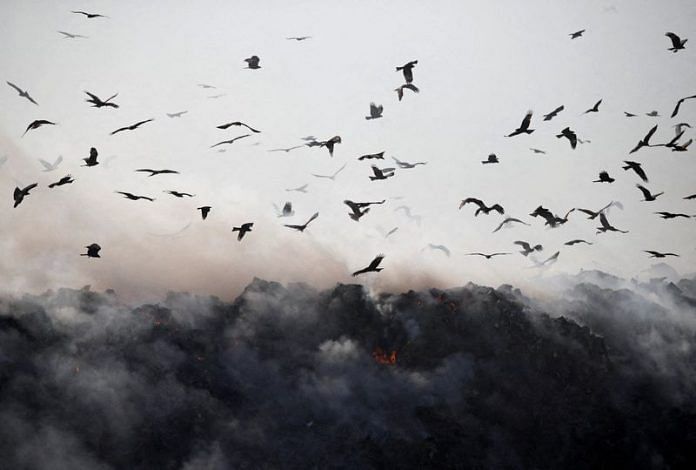By Aaron Ross
NAIROBI (Reuters) – Waste produced by the public will surge by 2050, causing hundreds of billions of dollars of damage through biodiversity loss, climate change and deadly pollution, the United Nations Environment Programme (UNEP) said in a report on Wednesday.
The report said unless urgent measures were taken global waste generation would soar, driven largely by fast-growing economies, including in Asia and sub-Saharan Africa where many countries are already struggling to manage current production levels.
UNEP projected the cost at $640 billion annually by the middle of the century, representing a more than 75% increase compared to 2020, when the world produced an estimated 2.1 billion tonnes of municipal solid waste, which excludes industrial waste.
Of the total, $443 billion would be externalities, including biodiversity loss, climate-altering gases produced by the breakdown of organic waste and pollution that contributes to between 400,000 and 1 million deaths per year, the report said.
The report, released during this week’s U.N. Environment Assembly in Kenya, warned humanity has “moved backwards” over the past decade, “generating more waste, more pollution and more greenhouse gas (GHG) emissions.”
Waste prevention measures and improved waste management could reduce those costs, but there are significant barriers to change, such as weak enforcement mechanisms, the report said.
A treaty to address plastics pollution, which does not biodegrade and can cause serious health impacts, is being negotiated, with a fourth round of talks scheduled for April.
UNEP Executive Director Inger Andersen said she was hopeful the treaty could be concluded by the end of this year despite differences between environmentalists and fossil fuel producers over how much the deal should focus on curbing plastics production versus promoting recycling and re-use.
“There is an interest, and especially among the countries that are producing raw polymer, but as I keep telling them, this is not an anti-plastic treaty,” Andersen told Reuters, noting there would still be a need for plastics in vehicles and medical equipment.
“I hope that there will not be delegations that would commit to obstruction but rather that we can find a way forward that actually takes into account the fact that we are drowning in plastic.”
(Reporting by Aaron Ross; Editing by Toby Chopra)
Disclaimer: This report is auto generated from the Reuters news service. ThePrint holds no responsibilty for its content.



